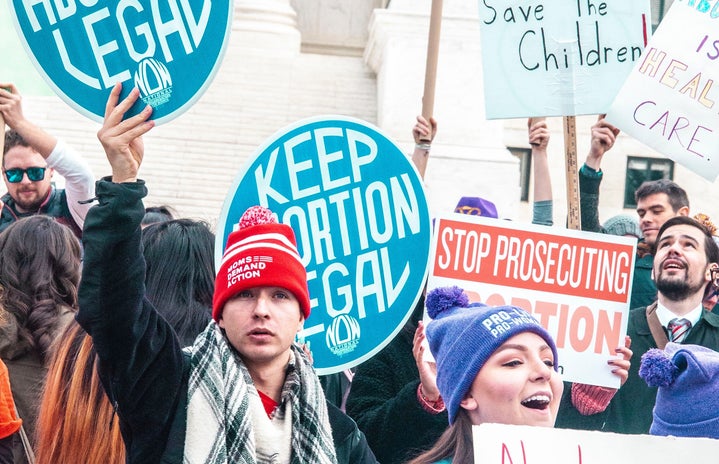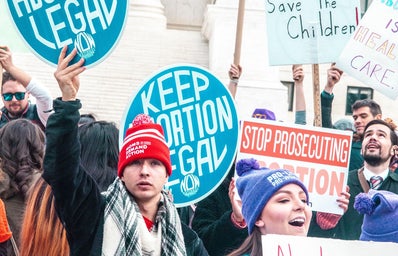In light of the Supreme Court’s leaked plans to overturn Roe v. Wade, women all over the country understand that our lives just got harder. My Instagram feed is buzzing with the infographic panic of female friends and family, sharing updates, protest flyers, and begging followers to see what’s at stake. I’ve seen maybe three of my male mutuals post about this issue, but I digress.
Advocating for social justice as a college student is difficult. We might be too broke to donate or too swamped to rally, but the passion is there. So we educate ourselves. Why are abortion rights such an explosively political issue? It hasn’t always been this way. American partisanship is at an all-time high, and the tension just keeps building – ironically, that’s the one thing Republicans and Democrats can both agree on.
It’s no secret that staunching reproductive rights is a thinly veiled plot to control women. The government gets less subtle with each attempt, and this month we’re being threatened with last century’s sexism. When my mom called me to relay Rachel Maddow’s coverage of the Politico leak, I was studying for an accounting midterm, and then all of a sudden I was wondering how many women have to die in pain before our nation’s leaders see that abortion is not preventable. You can take away the doctors, but you can’t ban coat hangers.
In my fury, I have been curious. Has Roe v. Wade been challenged like this before, in the decades since its implementation? Why is it being called into question right now, when other crises (particularly the climate emergency) deserve more administrative attention? How is it that such an egregious backslide can make it past the Supreme Court during a Democratic presidency? Too many questions for a rigged system.
For context: Roe v. Wade is the national precedent that allows individual states to make their own rules (to a specific degree) regarding abortion law. Reproductive rights allegedly owe much of their controversial status to the ill-received publicity of this ruling in 1973. The signature pro-life stance was added to the Republican party platform in 1976, but the majority of Americans don’t even want Roe overturned: a poll from May 3rd found that 54% think it should be upheld, and only 28% say the opposite. So what business do Justices Samuel Alito, Neil Gorsuch, Brett Kavanaugh, and Amy Coney Barrett have drafting a decision that does not reflect the priorities of their constituents?
If you feel confused and defeated, you’re not alone. From Glamour magazine on May 3rd: “It feels wrong to proceed as if everything is okay because it is wrong to proceed as if everything is okay.” In the same article, the campaign director for Liberate Abortion (an intersectional coalition for abortion accessibility) asks people to visit liberateabortion.org, where you can sign up for consistent updates with information on protests and other ways to help.
Refuse Fascism Seattle has also announced a week of activism plans, including a Rise Up 4 Abortion Rights protest starting at Capitol Hill’s Seattle Central College Plaza along Broadway on Saturday, May 14th. I hope I’ll see you there.


